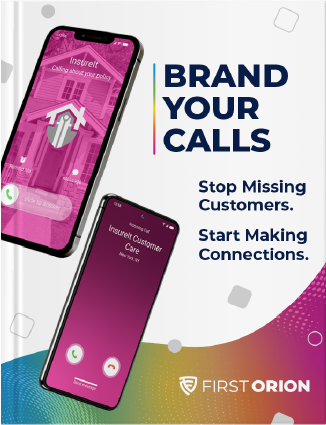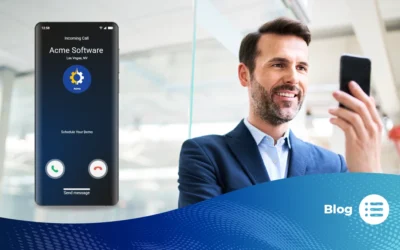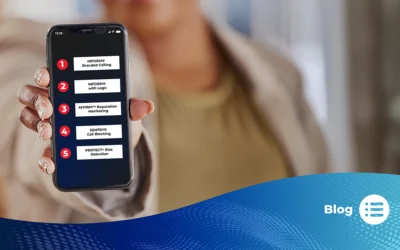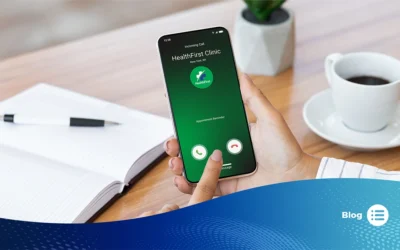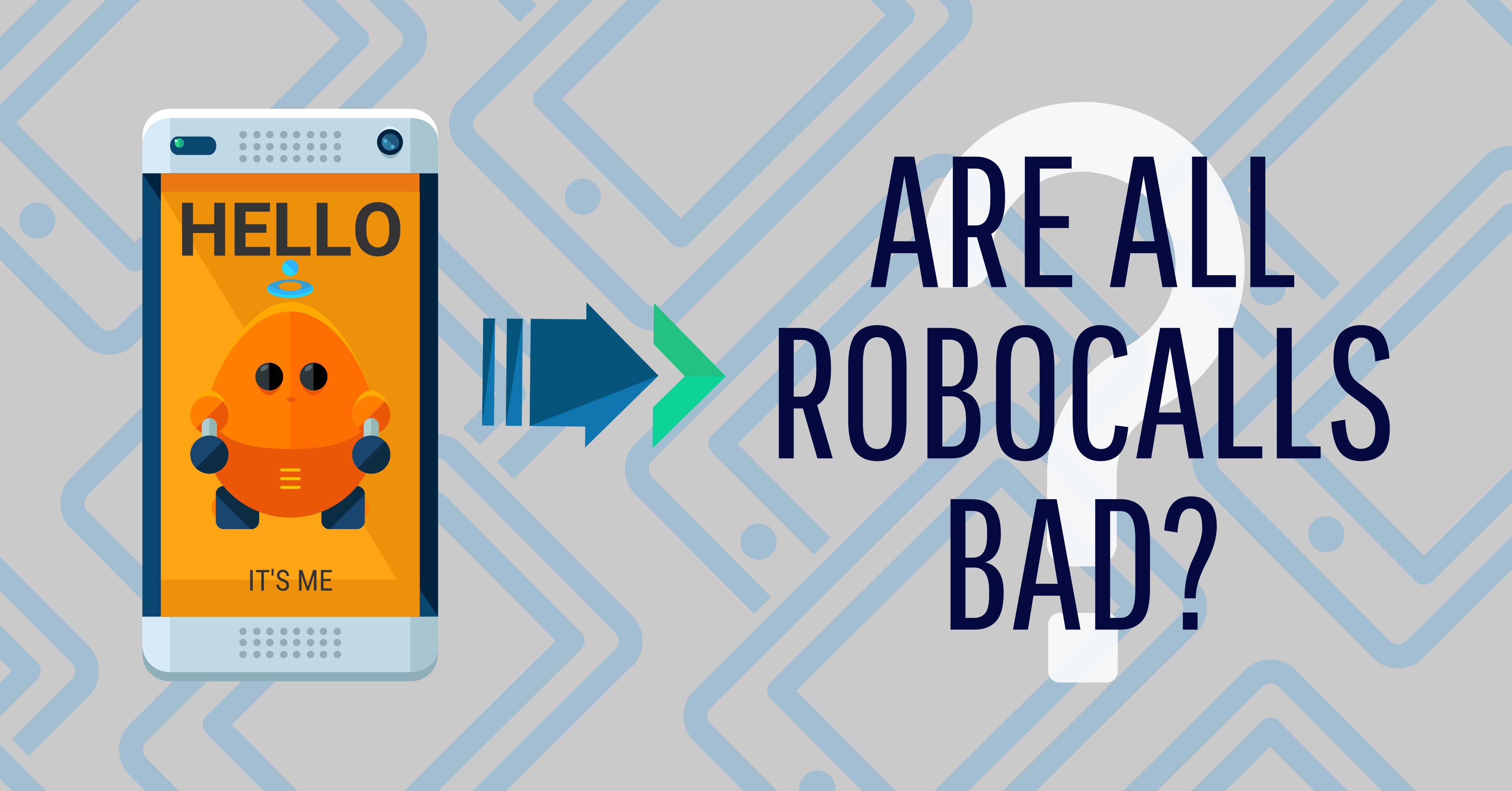
In 2017, the FTC reported 4.5 million robocall complaints for the year. For one year, that’s a lot of complaints, and a lot of annoying illegal calls. To date, the FTC has brought more than a hundred lawsuits against over 600 companies and individuals responsible for billions of illegal robocalls and other Do Not Call violations. It’s not surprising that the term “robocall” has gotten a bad reputation. But don’t be fooled – not all robocalls are bad.
A robocall is defined as any phone call with a recorded message instead of a live person. According to our surveys, 58% of people in the US do not believe there is such thing as a good robocall. While this is often true, there are some robocalls that are both legal and beneficial.
Some of the permitted types of robocalls are calls letting you know your flight has been cancelled, reminders about appointments, messages from schools, and local weather alerts. These calls are purely informational and for your benefit. What makes these particular calls legal is your permission. According to the Telephone Consumer Protect Act (TCPA), businesses must receive express, written consent before they can start robocalling people. Bank of America, Sallie Mae, and Walgreens have all been hit with illegal robocall lawsuits for failing to get customers to opt-in to calls before making them.
Other exceptions include political calls and calls from certain health care providers. Banks, carriers or charities are also exempt as long as they make the calls themselves. However, these are calls you can always opt out of receiving. To add your name to the National Do Not Call Registry, go to www.donotcall.gov and simply register your number. Once you submit your number, most telemarketers will be required to stop calling you 31 days from your registration date. This registration never expires, so once you do it, you’ll never have to worry about registering again.
So why do scammers get away scot-free? Unfortunately, litigation against scam artists – including those offering “free” prizes or sweepstakes – usually isn’t viable, since there must be a known company for you to sue. Scammers don’t really follow the law, and a lot of these calls originate from outside of the U.S. That’s why you can still receive illegal robocalls even if you’re on the Do Not Call list. Our app PrivacyStar tracks suspicious numbers that don’t play by the rules, so if you receive calls you believe to be illegal, make sure to report them in the app. We turn all of those numbers over directly to the FTC. You can also report them on the FTC’s website, or by calling 1-888-382-1222. If it’s just the non-stop ringing that’s got you bugged, PrivacyStar’s Pro service lets you customize your call protection and block out all known robocalls. Download it for Android or iPhone and try seven days of Pro service free.
